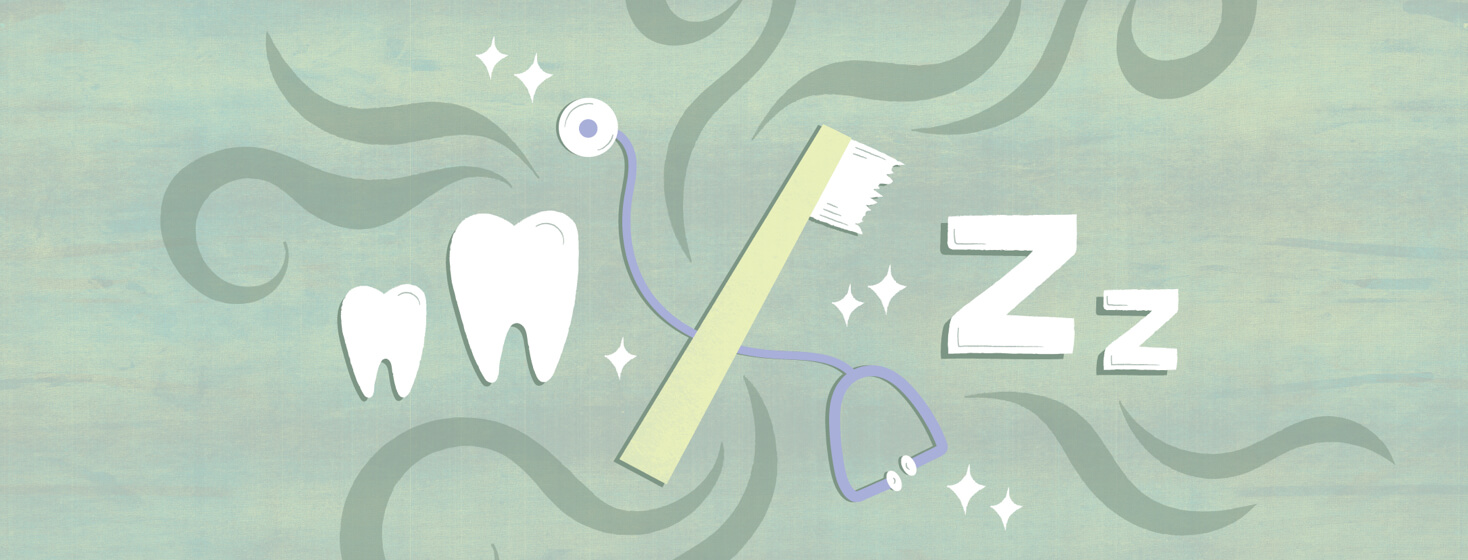The Oral Argument for Collaboration
Like most people, I think about going to the dentist when I need my teeth cleaned. I never realized that a dentist could be helpful in treating sleep apnea, until recently.
Many dentists are now specializing in what is becoming known as “sleep dentistry," collaborating with sleep specialists to find the best sleep apnea treatment for each individual patient.
What do sleep specialists do?
When a sleep disorder is suspected, the only way to have an official diagnosis is to consult with a sleep specialist. They organize for a polysomnogram to be performed by a specially trained technician. After a diagnosis of sleep apnea is made, usually, a CPAP or BIPAP machine is prescribed.
CPAP therapy works for many but not all
I saw a sleep specialist when my sleep apnea was diagnosed 12 years ago and have been using a CPAP ever since. For me, that was the end of my journey because my CPAP worked well to bring my sleep apnea under control.
I am one of the lucky ones. Far too many people are unable to tolerate CPAP therapy, owing to complaints such as claustrophobia. In those cases, working with a specially trained dentist can provide much-needed relief from sleep apnea symptoms without the CPAP.
Dentists and oral appliances
Mandibular advancement devices (MAD) or oral appliances can be fitted by a specialist dentist as an alternative treatment for patients unable or unwilling to use a CPAP. These devices move the lower jaw forward which moves the tongue out of the airway, reducing sleep apnea.
There are all sorts of different MAD oral appliances available but they need to be selected and fitted by an expert to ensure they fit and work well.
Hope and new collaborations
At a recent conference called “Collaboration Cures,” professionals from many different disciplines came together to share research, ideas, and make connections around airway health and sleep disorders. This conference is organized by the AAPMD (American Academy of Physiological Medicine and Dentistry) and the ACAM (American College of Advancement in Medicine) and brings together leading experts in the fields of medicine and dentistry to discuss improving treatment of conditions affected by the airway.
With everyone bringing their own unique perspective, the hope is that new collaborations and new treatments could result from conferences like this.
Dentists referring to doctors
Dr. Michael Gelb DDS, MS is a dentist who gave a talk at the conference titled, “Why a Physician Might Collaborate with a Dentist.” Dr. Gelb highlighted some areas where dentists are well-placed to notice signs of sleep-disordered breathing. These include bruxism, the clenching and grinding so common with sleep apnea.
Dentists are also in a good position to spot enlarged tonsils or a deviated septum in a patient. Each of these can cause sleep-disordered breathing. Dentists can use that information to suggest a patient goes to a sleep specialist for a sleep study and/or an ENT for a consultation about potentially beneficial surgery.
Doctors referring to dentists
Conversely, sleep specialists who find their patients unwilling or unable to tolerate CPAP therapy, have the option to refer those patients to a dentist specializing in MAD appliances. This is far preferable to the patient abandoning their CPAP therapy and then leaving their sleep apnea untreated.
Untreated sleep apnea has devastating consequences for the long-term health of the sufferer.
We all benefit from more collaboration
The more health professionals from different fields can work together, the better the outcomes will be. Many cases of sleep apnea remain undiagnosed.
The more health professionals who are on the hunt for signs of sleep apnea, the better for all of us.

Join the conversation